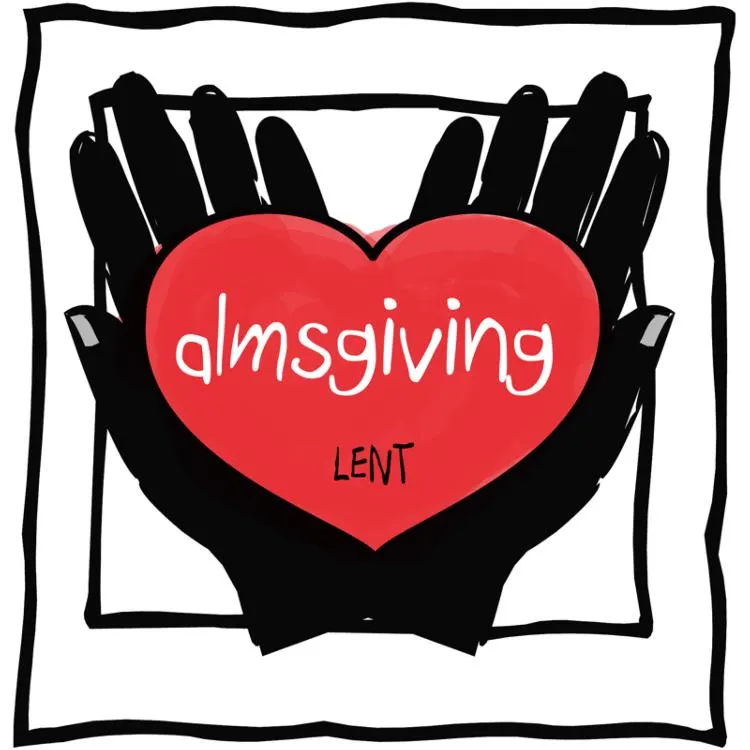
What Is Almsgiving?
Almsgiving goes beyond dropping a few coins in a collection box. It is love in action, it is a response to the needs of others driven by compassion, not compulsion. It’s choosing to serve, to care, to help, and to give, especially when it’s uncomfortable. Almsgiving, is one of the three pillars of Lent along with prayer and fasting, it isn’t just about charity; it’s about transformation. It’s not about giving what we can spare but about giving in a way that touches our hearts, it’s about sacrifices and mirroring Christ’s selfless love.
Jesus praised the widow in Mark 12:41–44, who gave two small copper coins “all she had to live on.” Why? Because she gave out of her poverty, not her abundance. Her gift was small in value, but rich in sacrifice. This is the heart of true almsgiving not the size of the gift, but the size of the heart behind it.
In a world where generosity is often measured by how convenient it is, we often give only when it’s safe, when we know it won’t affect our lifestyle, our time, or our schedule too much. But today God invites us to a higher standard of almsgiving. A kind of almsgiving that, comes from the heart and that is full of sacrifice. Accordingly, Lent calls us to a deeper, more sacrificial kind of giving. a giving that costs us something. Each year, Lent offers us a divine opportunity to deepen the meaning and value of our Christian lives, and inspires us to rediscover the mercy of God so that we, in turn, become more merciful toward our brothers and sisters. We are therefore, challenged to give alms that stretches us, that costs us some discomfort but, in return we are also blessed more than we could imagine.
The true spirit of almsgiving is an act of worship and offering to God, not just to man. Proverbs 19:17 says, “Whoever is kind to the poor lends to the Lord, and He will reward them for what they have done.” When we engage in almsgiving that charges, we start to care less about material things and more about eternal ones. We begin to see Jesus in the faces of those we serve. Our hearts become softer, our lives simpler, and our joy deeper. Thus, we begin to understand that we are not owners of the properties we have but rather administrators of the goods we possess and so we stop to consider these possessions as our exclusive possession, but as means through which the Lord calls each of us to act as a steward of His providence for our neighbour. Additionally, in a message given by Pope Benedict XVI, in 2008, he said that almsgiving helps us to overcome constant temptation and teaches us to respond to our neighbour’ s needs and to share with others whatever we possess through divine goodness. This explains the reason behind the special collections in favor of the poor after each stations of the Cross on Wednesdays and Fridays during Lent, as promoted in many parts of the world.
Nonetheless, the Gospel highlights that a typical feature of Christian almsgiving must be hidden; And (Matthew 6,3-4) says, ’But when you help a needy person, do it in such a way that even your closest friend will not know about it. Then it will be a private matter and Your Father, who sees what you do in private, will reward you’’ Prior to this passage, Jesus also said in (Matthew. 6,1-2) ‘’Make certain you do not perform your religious duties in public so that people will see what you do. If you do these things publicly, you will not have any reward from your Father in heaven.’’ ‘’So, when you give something to the needy person, do not make a big show of it, as the hypocrites do in the houses of worship and on the streets. They do it so that people will praise them. I assure you, they have already been paid in full’’ (Mt 5,16). Therefore, everything you do must be done for God’s glory and not our own. This understanding, dear brothers and sisters, must accompany every gesture of help to our neighbour and we must avoid to make it become a means to make ourselves the center of attention.






2 Comments